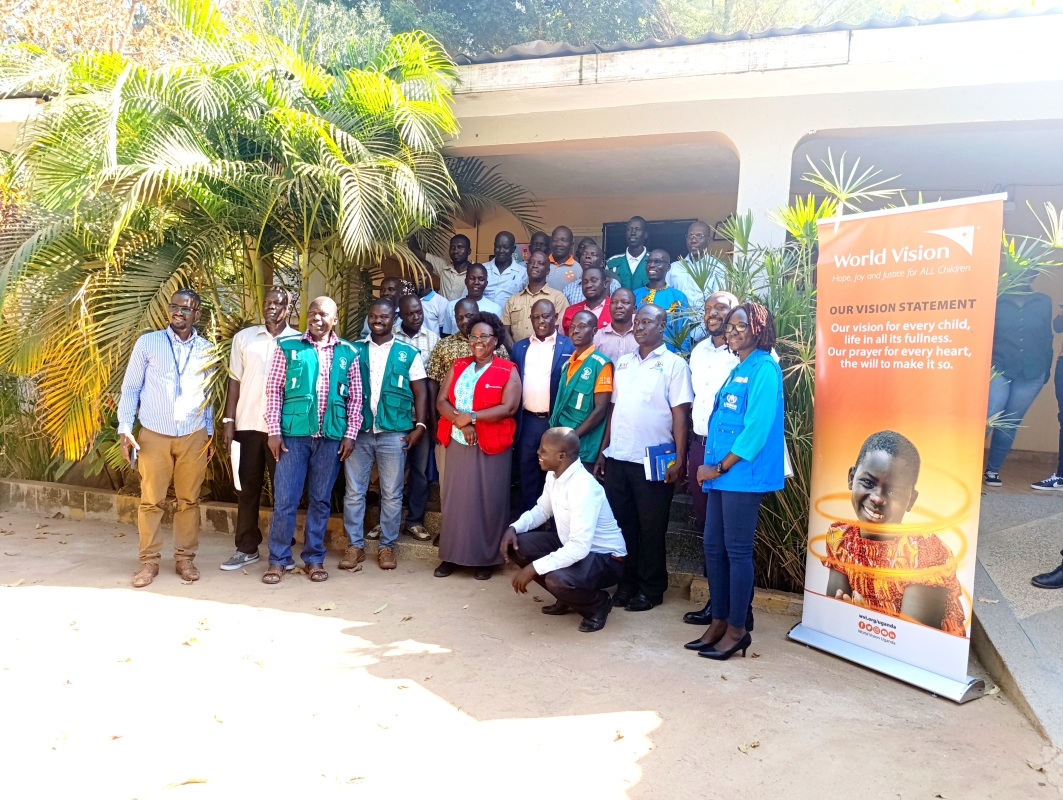Attention
SAVE THE CHILDREN LAUNCHES 4 YEAR URRI PROGRAMME TO SUPPORT 12,347 FARMERS IN ADJUMANI TO ADAPT TO CLIMATE CHANGE.

By Bazio Doreen.
A consortium of 7 implementing partners led by Save the Children has launched the Uganda Refugee Resilience Initiative (URRI) project (October 2024–December 2028), replacing the Northern Uganda Resilience Initiative (NURI) project that ended in 2023. The other partners in the consortium are: World Vision, AVSI, YSAT, UGANET, KRC, and RIL.
Funded by DANIDA, the URRI project will be running from October 2024 to December 2028, addressing gender inequality, climate change, food shortages, and unsustainable use of environment and forest products, mainly operating in the areas previously supported under NURI. The project targets 7,404 vulnerable refugees as direct beneficiaries and 49,388 as indirect beneficiaries, of whom 60% will be women and youth.
Stakeholders’ view.
In his welcome remarks, Mr. Edema Richard, the PACAO, who represented the CAO, observed that the project was long overdue because NURI had left so many gaps that needed to be bridged. He also urged the consortium to ensure that there is a visible impact in the targeted communities at the end of the project.
Hon. Adrupio Irene Appi, the Secretary for Finance, who represented the District Chairman, while opening the inception meeting thanked Save the Children for the initiative and observed that it will help in complementing the already existing efforts of government towards combating climate change.
Mr. Erasto Kivumbi, the Environment Officer UNHCR-Pakele, observed that many beneficiaries find it hard to adapt to climate change coping mechanisms, adding that there is also a risk of pendulum movement of refugees across borders. He thus rallied the implementing partners to also ensure that impact is not just seen at the group level but that individuals’ livelihoods are changed, adding that there are already 7 other NGOs implementing a similar project and some dubious groups may take advantage of this. He also appealed that other implementation areas be considered other than those covered by NURI since many groups disintegrated.
On his part, Giyaya Charles, the District Natural Resources Officer, also rallied the implementing partners to develop Settlement Environment management plans and align their implementation with the District Development Plan. He also informed stakeholders that the district was already supporting the Ministry of Environment in implementing a similar project dubbed: the Uganda Climate Smart Agriculture Project.
About the project.
With a budget of DKK 220 million (Ugx 113,676,640,000/=), URRI aims to create sustainable and durable solutions for Uganda’s refugees and Uganda’s refugee-affected districts where high levels of poverty have exacerbated the impact of refugees and climate change. The project will furthermore support Uganda’s progressive refugee policies under the Comprehensive Refugee Response Framework (CRRF). It will respond to pillar 3 of the CRRF, i.e., building resilience and self-reliance for refugees and host communities.
URRI promotes resilience in the refugee-affected areas through climate-smart agriculture, sustainable management of the environment, and gender equality. It has a strong focus on both refugees and the Ugandan host communities, with women and youth as particular target groups. URRI aims to reach a ratio of 35% refugees and 65% host population. The initiative has a special focus on women empowerment and gender-responsive approaches as well as capacity development of local actors, including the district local governments.
URRI will be implemented mainly in the refugee-affected areas of Northern Uganda: Yumbe, Obongi, Moyo, Madi Okollo, Terego, Koboko, Adjumani, and Lamwo. The project will extend to one refugee hosting district in Western Uganda, Kyegegwa, with a possibility of further expansion to more refugee hosting districts in Western Uganda.
END.
